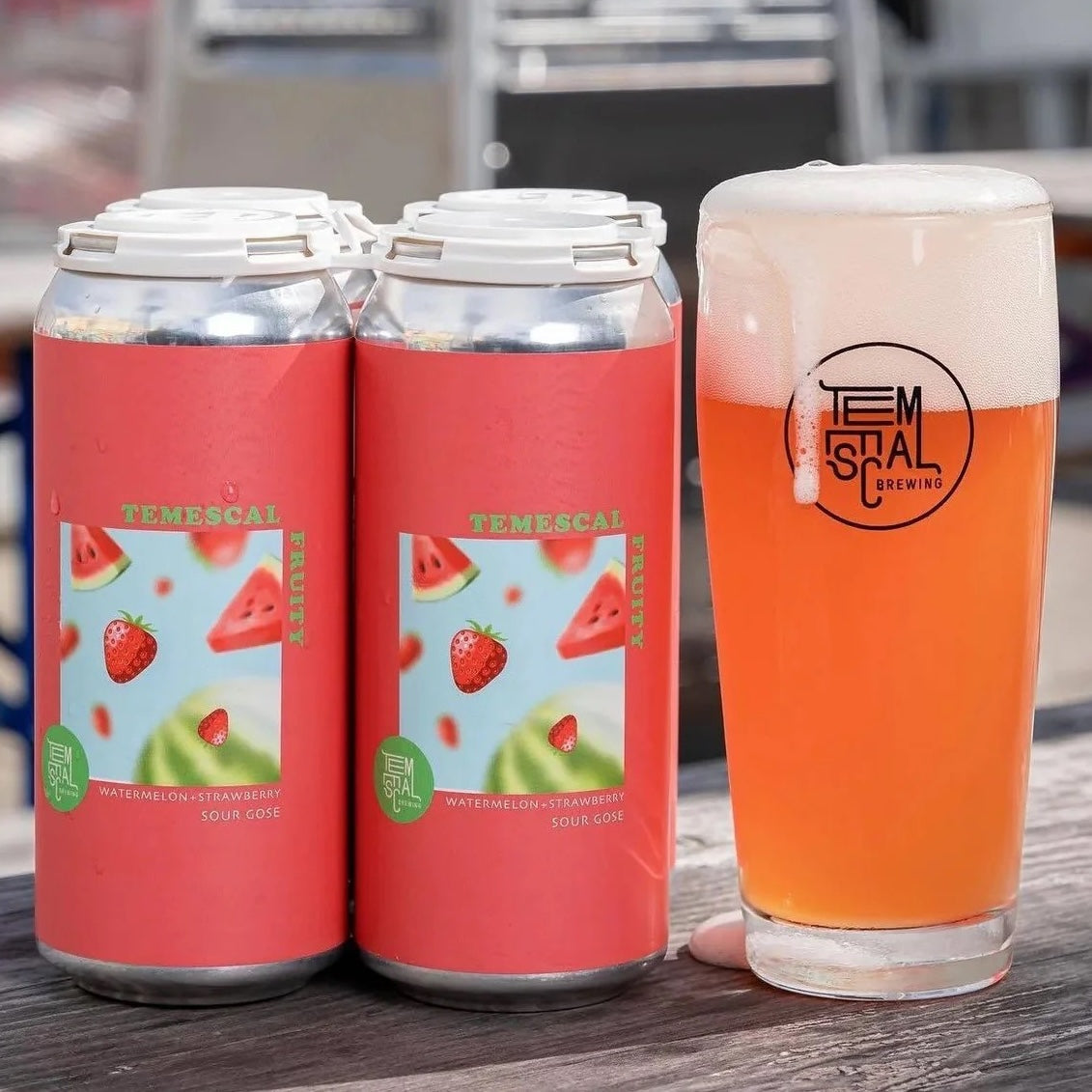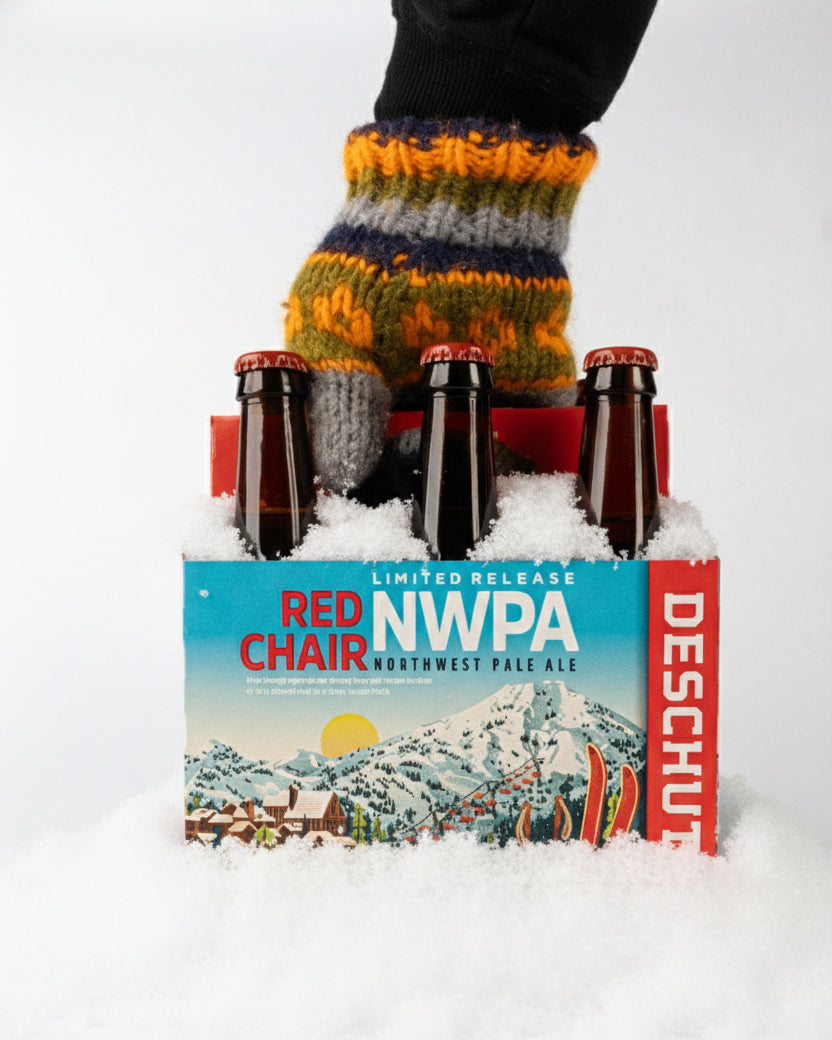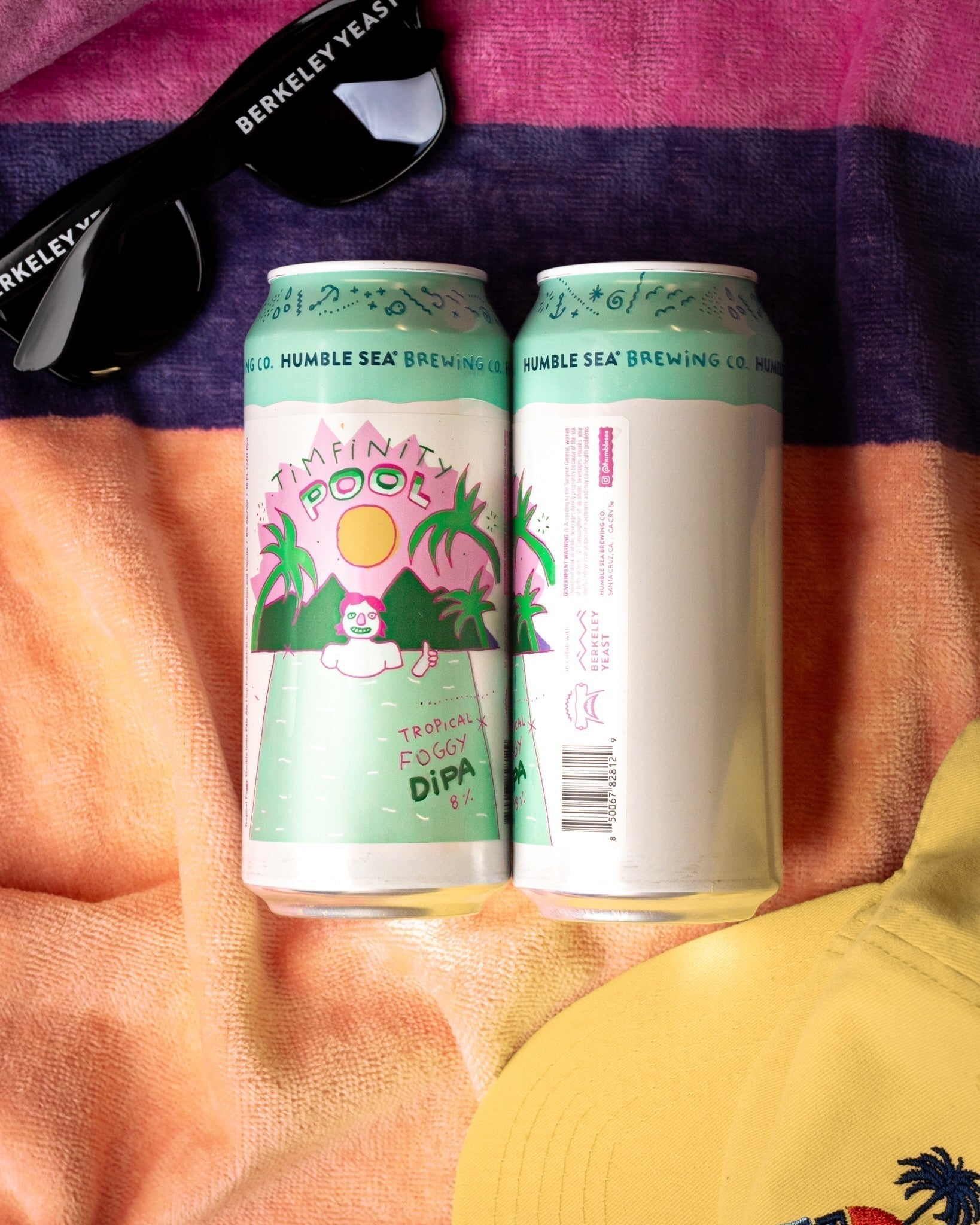By Joshua M. Bernstein
It only takes a couple seconds to count the brewing team at Temescal Brewing. “Two of us make all the beer,” says Ryan Hammond, the head brewer at the Oakland, California, brewery that was founded in 2016. Many breweries start with slim brewing staffs and moderate output, no need to brew around the clock. But as demand increased for Temescal’s beers, planning the brewing schedule grew complex, especially when kettle souring a beer.
Compared to a standard IPA, the technique for kettle souring a beer can add several days to a production timeline. On a Friday, Temescal brewers dosed warm wort with some form of souring Lactobacillus bacteria, before returning over the weekend to check that the pH dropped to the desired tartness. The brewers then boiled the tangy wort to sterilize it, before cooling and transferring the liquid to a fermenter and pitching yeast—all so Temescal could brew more on Monday. “It added quite a bit to our plate,” Hammond says.
The brewery cycled through different souring methods, including pitching Lactobacillus-packed yogurt or adding loads of acidic passion fruit. No technique was beloved. In 2020, Hammond tested Berkeley Yeast’s Galactic strain, a bioengineered yeast strain that produces lactic acid during fermentation without bacterial aid. The all-in-one strain reduced excess time, labor, and energy spent on kettle souring and sterilization.
“We’ve been running with it ever since,” Hammond says. “It simplifies our operations.”
Sour beers originally stemmed from contamination with souring bacteria such as Lactobacillus or Pediococcus, maybe coupled with wild Brettanomyces yeast. Achieving a perfect pucker meant sending beer to wooden barrels for multiple months or years. The results could be a costly crapshoot; if the process goes wrong, the result is vinegar swirling down a drain. The advent of kettle souring helped brewers produce somewhat more affordable sour ales on accelerated timelines, reviving and popularizing Germany’s tart and salty gose and the bright, lemony Berliner weisse.
In time, the sour base beer became a platform for lavish amounts of mangos, strawberries, and other fruit. But Lactobacillus contributes more than lactic acid, a potential landmine of off flavors awaiting a brewing misstep. “Lactobacillus can make some disgusting butyric acid aromas,” says Michael Meier, the head of production at Berkeley Yeast. (The compound contributes heavily to baby vomit’s rancid aroma.) In kettle sours, Meier also notices tetrahydropyridine, or THP, an off flavor that’s often compared to breakfast cereal or mouse urine. “You don’t get that with Galactic.”
Galactic Creates a More Approachable Acidity
American brewers began going wild in the early 2010s by using souring bacteria and Brettanomyces to create complex, acid-edged beers. Overly bitter IPAs were everywhere. Why not super-acidic beers as well? Such extremes, though, proved tough to stomach for the masses.
Even a couple years ago, “it was acid, acid, acid. You’d see people order one [sour ale], drink it, order a second, and leave half the beer on the table,” Meier says. “When the concentrations of lactic acid are so high, it can make the flavor and aroma of fruit feel thin, tinny, and off-putting.”
Berkeley Yeast tailored Galactic’s genetics to finish around 3.5 pH, meaning that instead of melting tooth enamel, it can bring fruit to life. (Some fruits like mangoes and strawberries are acidic, so increasing tartness can accentuate the perception of fruit character.) The pleasant acidity produces a palatable sour ale, eliminating the need to blend with a non-sour beer or pop a Tums before taking a sip. Fruit additions will slightly intensify acidity, but the results remain as welcoming as a summery glass of fresh-squeezed lemonade.
Galactic “isn’t overly acidic at all,” says Sam Sadovnic, the director of brewing operations at Prison City Brewing in Auburn, New York. This summer, he used Galactic to make Jamberry Beret with blackberries, lingonberries, and blueberries, helping the fruit notes pop in 3-D. Fast-working Galactic finished fermentation in three or four days and created a balance that’s often lacking in sour ales. “Galactic leaves some body behind while still being a decent attenuator so that you don’t have a really sweet or cloying beer.”

Prison City’s Jamberry Beret. Photo credit: Caroline Lethbridge.
Time can be an expensive brewing ingredient. Milwaukee’s 1840 Brewing opened in 2017 with plenty of barrels and cultures to create “slow beer” that might take more than two years to make. The brewery released beers monthly, before local interest led 1840 to expand operations the following year. The company eventually added lagers, IPAs, stouts, and kettle-soured ales that could be produced in weeks, not years.
With kettle sours, the threat of unwanted microbes always lurked in the back of head brewer Casey Seymour’s brain. “You’re opening yourself up to an infection issue.”
About two years ago, Seymour allayed lingering worries by switching to the Galactic strain. He now uses Galactic to create a range of fruited sour ales, including the rotating Plumpy series that’s built with oats and lactose, then mixed with a mélange of stone fruits, berries, and more. The strain delivers predictable results, a cleaner flavor profile, and pH that’s “right in the sweet spot where we want it to be.”
Galactic’s dependability helps brewers build dedicated lines of sour beers, swapping out different fruits to keep things fresh and flavorful. Temescal makes the Temescal Fruity line of sour ales with combinations such as peach and plum or pineapple and mango. They diversify the brewery’s portfolio and can evoke cocktails or wine, which California laws forbid the Temescal taproom from serving.
“It fills that gap,” says Hammond, who has also used the strain to reimagine the mezcal Paloma cocktail. Galactic’s gentle acidity integrated with grapefruit, salt, and smoked malt produces a refreshing facsimile.

Temescal’s Head Brewer, Ryan Hammond, transfers a beer. Photo courtesy of Temescal Brewing.
Contract Brewers Can Make Worry-Free Sour Beers With Galactic
Thriving breweries sometimes require additional capacity to meet consumer demand, requiring them to seek out contract-brewing services. Sour and wild ales are often eighty-sixed from the suite of fermentation services. The danger of Lactobacillus and Brettanomyces infecting other beers can outweigh the check for making mixed-fermentation or fruited sour ales.
“You’re introducing something to your brewery that you don’t want,” says Marty Wilhelm, the quality assurance specialist for Avery Brewing in Boulder, Colorado.“If it’s your brand and you’re willing to take that risk, then you can make that decision. But if you have lots of contract partnerships, that becomes less and less viable.”
Galactic has helped Avery stop leaving bucks on the brew deck. In 2022, Avery started using the yeast to produce a blood orange gose for Denver’s Prost Brewing. Wilhelm says that risk-free Galactic meets the brewery’s typical fermentation timetables. Now the brewery can say yes to contract partners seeking sour ales. “Galactic allows us to be flexible.”
The freedom to make a sour ale without forethought is another strong selling point. In the Bay Area, summer-like weather hits in the fall. “October just gets ridiculously hot,” Hammond says. Warm weather dictates scaling up production of Temescal’s thirst-cutting fruited sour ales. “Galactic removes the roadblocks that prevent the beer from happening.”
Sour and mixed-fermentation ales have spent the last 15 years charming and challenging modern beer drinkers. These bacterial marvels broke down flavorful barriers, but too many bad acid trips have turned off drinkers.

Bottling Beer at Prison City. Photo credit: Caroline Lethbridge.




